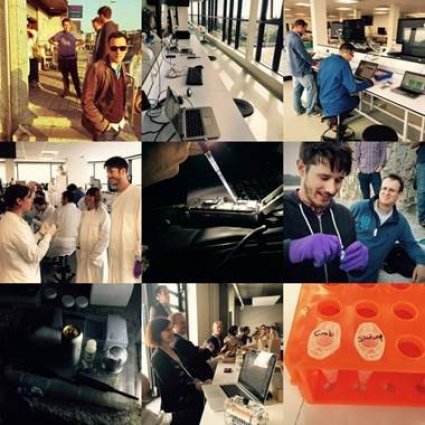Professional Development
Congratulations to Melia Burden on becoming our latest member of the IST (MIST). Our Technical Services roll of honour shows all our technical staff who have professional memberships and are professionally registered.
To help you all on your professional development path we have added a new section on our website (in the “Technical Staff Structured Development Framework” section) showing the HEaTED Professional Development Route Map. We have put smiley faces against everything Technical Services is doing to help you achieve your development goals, and have expanded on the ‘Technician’ section with some details of where to look and what you could do to achieve each of the suggested progression steps.
Our website is constantly evolving, so please keep coming back to our website to find out about latest news, events, and professional development. If you have any suggestions on how we can make our site more useful, user friendly, or anything we can add to it, please feel free to contact me with your ideas.
Professional Registration Case Study – Registered Scientist (RSci)
/media/universityofexeter/technicalservices/images/web_Florian_Bayer_RSci_feat_218x115.jpgThe award of professional registration is a significant milestone for any technician. It signifies that you have verified knowledge, understanding and competence in your scientific area.
Professional registration shows you are committed to continually update your skills and knowledge, keeping up to date with the latest technology and techniques.
Read what Florian Bayer RSci has to say about professional registration here.
Membership and Professional Registration
As an Employer Champion with the Science Council, the University of Exeter is committed to actively promoting and supporting the professional development and recognition of our scientific staff through professional registration, and providing an environment in which registrants are able to uphold their codes of conduct. You can read case studies from technical staff who have been through the process here.
How does Professional Registration benefit me?
- Formally recognises your previous knowledge and experience.
- Is linked to you individually, and is transferable between roles and organisations.
- It demonstrates your commitment to continued professional development and shows you maintain knowledge by keeping up to date in your field of expertise.
- It is a mutually respected and harmonised level of professional competence and understanding.
- Is visible to potential employers when you add your level after your name on CVs and address blocks.
- Is internationally recognised.
How do I apply?
As part of our continued commitment to our technical staff and their personal/professional development, Technical Services will cover the costs of initial membership fees for Technical Services staff. Whilst Technical Services will pay for the initial professional body membership, individuals will be required to pay to cover their own individual registration fee and subsequent annual fees. Follow these simple steps:
- Apply for membership online with the relevant professional body through the common application process (you will need to choose the body from one of those licensed to award Science Council professional registration).
- You can also get in touch with the Science Council to find out more.
- Complete the application form – using the competency matrix to align your application with the relevant level. You will need to clearly detail how you meet the criteria at your desired level, and should provide examples.
- Provide details of your supporter (usually your Line Manager) who will vouch for your skills and experience to support your application.
PoreCamp
 The Exeter Sequencing Service ran a 1-week international course on portable nanopore-based DNA sequencing at the Penryn campus during the week of 15-19th August. Over 42 participants from 13 countries attended this intensive, immersive course along with experts from the UK, US and Canada. Participants brought their own material and were able to generate libraries, run the portable MinION sequencer and learn how to assemble genomes, annotate them and call variants. We also had an attempt at performing “beach-side” DNA sequencing of invertebrates found on Falmouth beach. Although this failed to generate any useful data, I’m pleased to report every single participant generated useful data and a publication and data-release is about to be made.
The Exeter Sequencing Service ran a 1-week international course on portable nanopore-based DNA sequencing at the Penryn campus during the week of 15-19th August. Over 42 participants from 13 countries attended this intensive, immersive course along with experts from the UK, US and Canada. Participants brought their own material and were able to generate libraries, run the portable MinION sequencer and learn how to assemble genomes, annotate them and call variants. We also had an attempt at performing “beach-side” DNA sequencing of invertebrates found on Falmouth beach. Although this failed to generate any useful data, I’m pleased to report every single participant generated useful data and a publication and data-release is about to be made.
Special thanks to Karen Moore, Audrey Farbos, MD Sharma and Suzanne Kay who worked hard to make this very special event happen.“
New Joiners to Technical Services
Technical Services would like to welcome the following new staff to the University, and congratulate existing staff in their new role:
- Laura Biddle – Technician Biosciences Teaching
- David Cruse – Research Technician
- Hannah Jenkins – CSM Laboratory Assistant
- Olivia Lee – GBP – Laboratory Assistant (Teaching Support)
- Fabian Lesser – Clinical Skills Resource Centre Assistant
- Grace McNicholas – Laboratory Technician
- Nina Rickards – GBP – Laboratory and Clinical Research Intern
- Darren Rowe – Laboratory Manager
- Rebecca Turner – Laboratory Technician
- Richard Webb – Laboratory Manager
